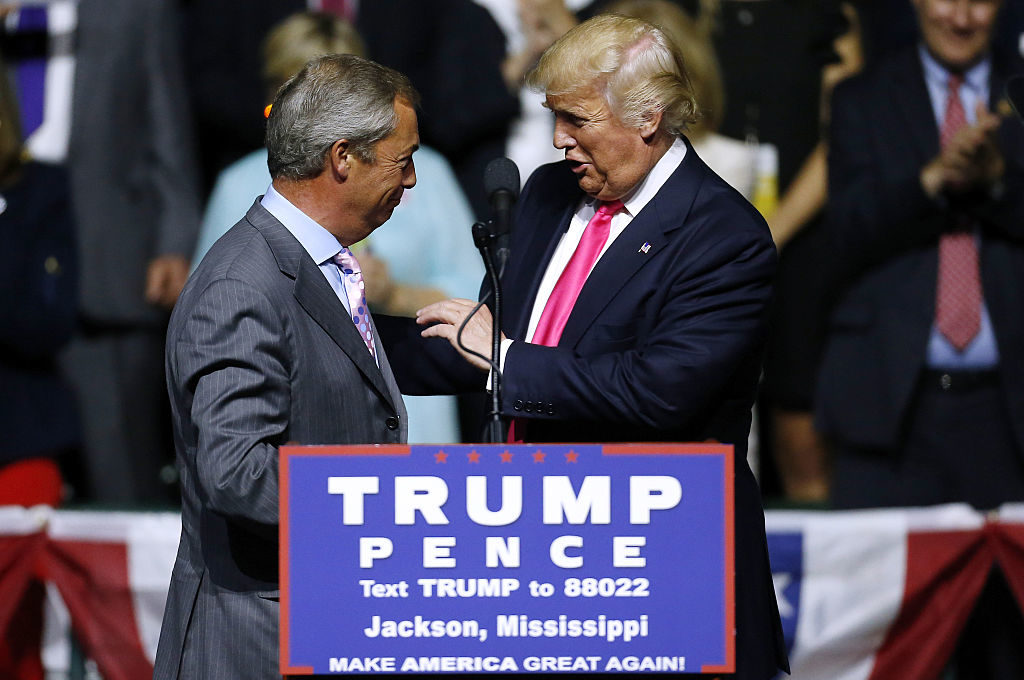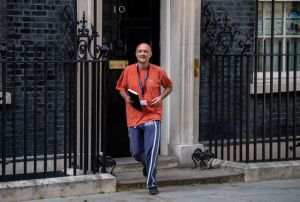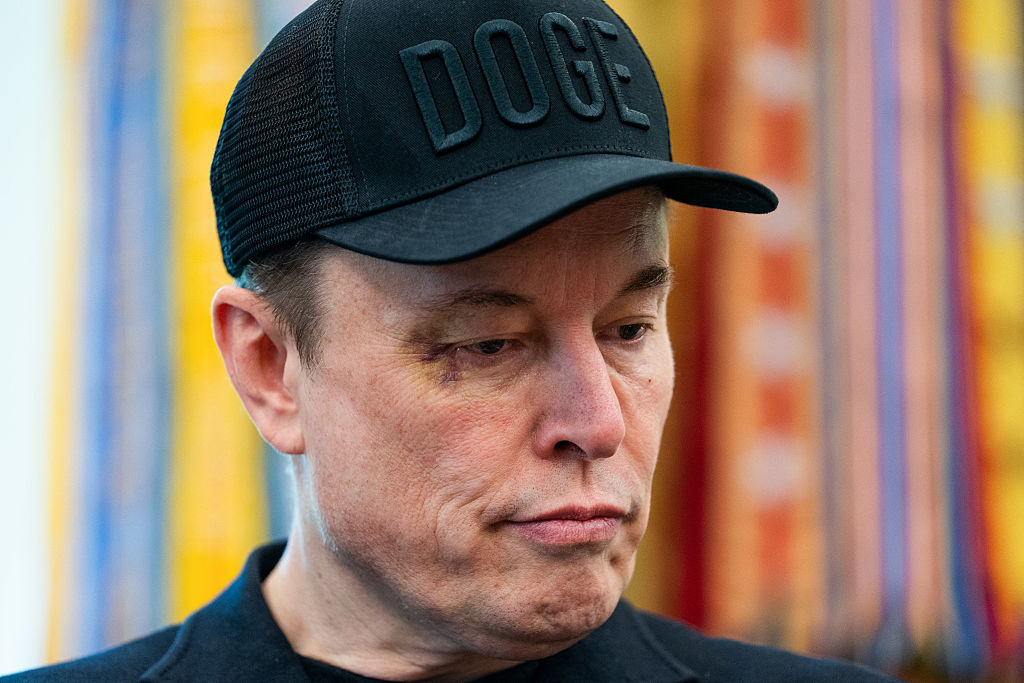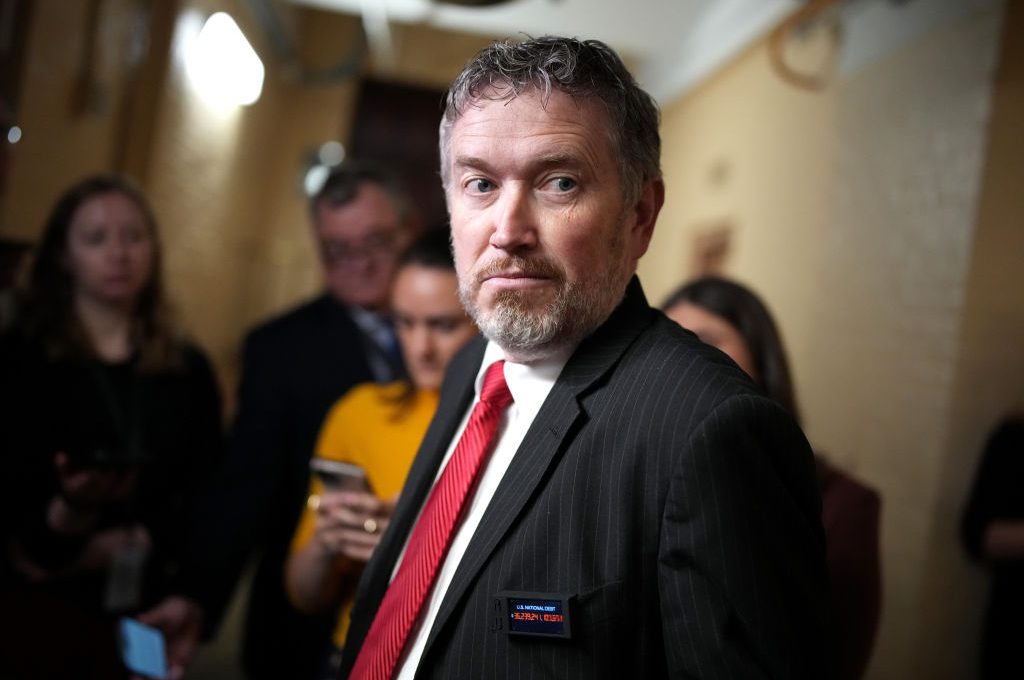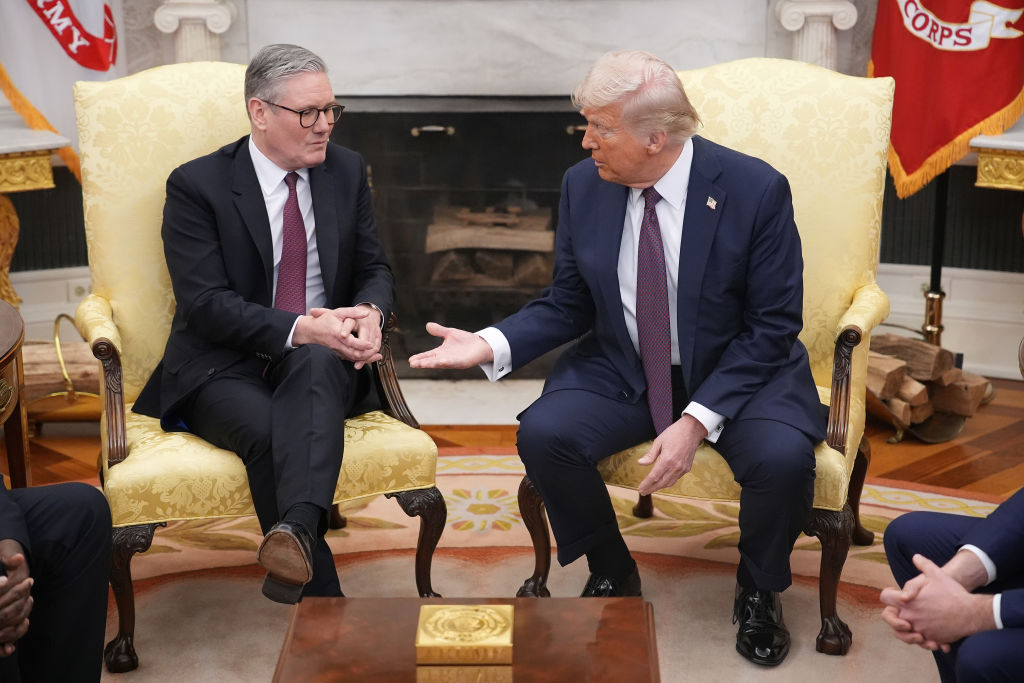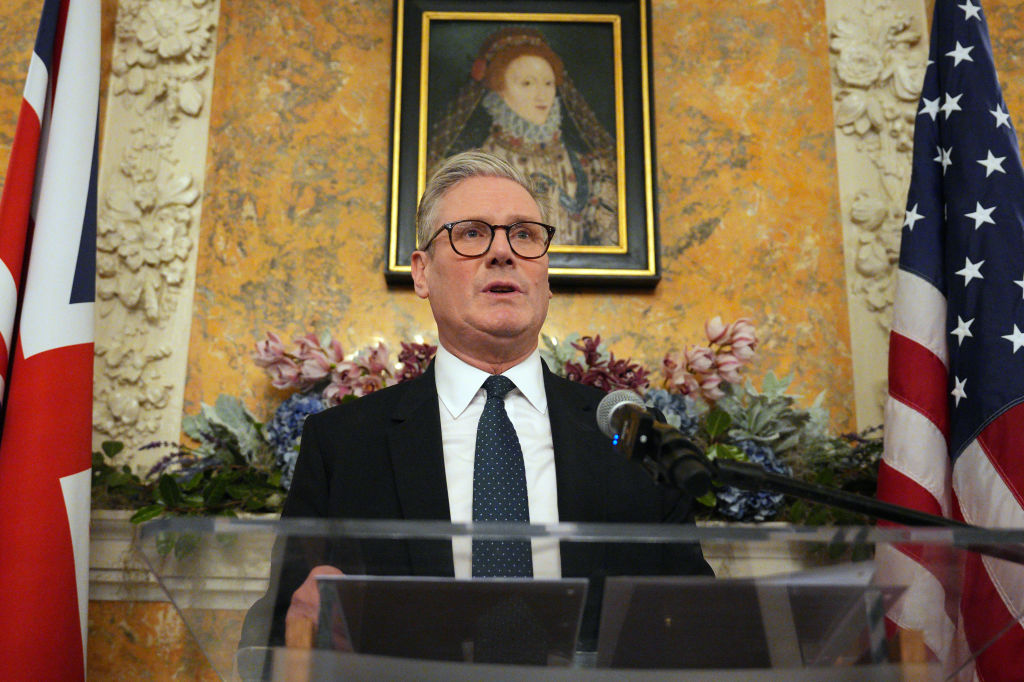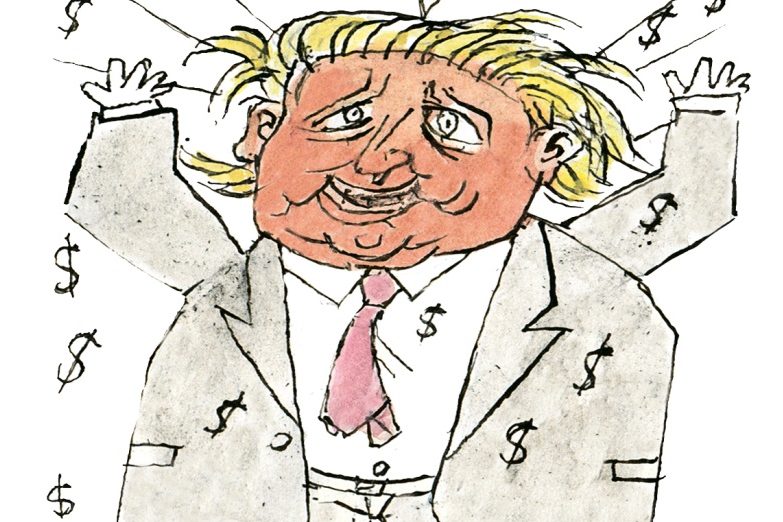For a president about to face ‘The Greatest Witch Hunt In American History’, Donald Trump sounded thoroughly unperturbed when, as presidents often do when the House votes to impeach, he turned his attention to that essential part of the top job: a long, relaxed and amiable phone interview with Nigel Farage, addressing such matters of central import to the American public as the electoral chances of Jeremy Corbyn.
Trump was on comedic top form, bantering about ‘Boris’ and ‘Sleepy Joe’ and ‘Pocahontas’, and explaining to his out-of-town audience that impeachment proceedings weren’t going to proceed anywhere because the Republicans control the Senate. Farage sounded like he was on his knees, so audibly grateful to have the president on the line.
You know you’re in trouble when Donald Trump is the voice of reason. For that is exactly what Trump was as he tiptoed into the question of Britain’s imminent general election with the delicacy of a rutting bull elephant. The election will be a de facto referendum on Boris Johnson’s Brexit deal with the European Union — a deal which Trump, showing a firmer grasp of the essential details than most of Britain’s conservative media, observed is both an urgent necessity and an undesirable liability.
‘You should be able to knock that off,’ he said, comparing a complex diplomatic negotiation to a putt at short-range. He also said that the terms of Johnson’s Brexit deal are likely to obstruct the free trade deal between the US and UK that Trump has offered and Johnson wishes to conclude.
This was indelicate, because it is true, just as it was true of Trump to say that Bernie Sanders looks ‘blown out’, that Germany and 20 other European states aren’t paying their way in Nato, and that a Britain led by Jeremy Corbyn, the Israel-baiting, IRA-hugging, Islamist-loving communist who leads the Labour party, would be heading to ‘bad places’.
You know you’re really in trouble when Donald Trump’s truths merge with Barack Obama’s falsehoods. Before the Brexit referendum of 2016, Obama issued patronizing orders to his British subjects, telling them to vote Remain or join ‘the back of the queue’ when it came to negotiating a trade deal with the US. This was speculation and scare tactics, for the cost of a possible Brexit was then unknown.
Today, we now the likely cost of the deal that, negotiated first by the hapless Theresa May and renegotiated in Trumpian fashion by dealmaker Boris Johnson, must be ratified by the London Parliament before the end of the year. As Trump rightly says, ‘Boris wants to be very careful with that.’
Boris also wants to be very careful about Farage. His long efforts to extricate Britain from the EU were essential to the Leave victory in the 2016 referendum, and he has emerged from a three-year hibernation in radio and television studios as the leader of a one-man band called the Brexit party, whose sole policy is to get Britain out of the EU with no concessions at all. This, as Jacobean dealmaker Hamlet says, is a consummation devoutly to be wished, but it could only happen without negotiation, or even Trumpish renegotiation.
If you’re Boris Johnson, you know you’re really, really in trouble when Donald Trump is saying on the radio that your Brexit deal is little more than Theresa May’s pig with lipstick added, and that you should invite Farage, whose efforts to spring the UK from the EU split the Conservatives and forced the UK down the road to Brexit, into the government.
‘I’d like to see you and Boris get together because you would really have some numbers,’ Trump said. ‘He respects you a lot, I can tell you that.’
Perhaps Johnson respects Farage as an adversary, respect being the better part of fear. The prospect isn’t as outlandish as it sounds: the headlines in this morning’s London papers carried rumors of an unofficial electoral pact between Johnson and Farage, with the Brexit party withdrawing its candidates from marginal Conservative seats. And Trump is undoubtedly closer to British public opinion than the majority of Britain’s political and media classes when he acknowledges with his inimitable comic sense that the British are sick of Brexit and the political incompetence it has exposed: ‘People are tired of it. Even we’re tired of it.’
While most of American media and the ‘do-nothing Democrats’ call Trump a liar, he told more truths about the state of Britain and the near-term prospects for US-UK relations than any British parliamentarian has managed since the Brexit ordeal began.



